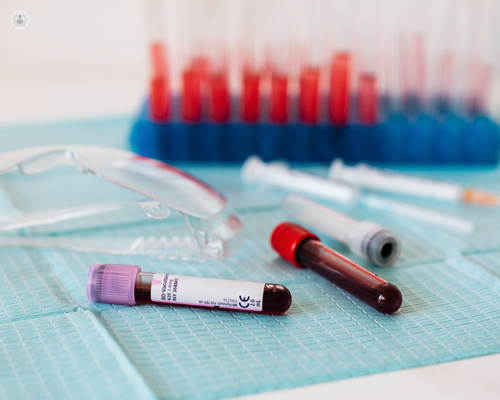Natriuretic peptides: BNP and NT-proBNP
What is being analysed?
Natriuretic peptides, including B-type natriuretic peptide (BNP) and N-terminal pro-B-type natriuretic peptide (NT-proBNP), are hormones produced by the heart in response to stretching of heart muscle cells (cardiomyocytes). These peptides play a crucial role in regulating blood volume and pressure, helping to maintain cardiovascular homeostasis.

What does the result mean?
The levels of BNP and NT-proBNP in the blood are indicative of heart function and can help in diagnosing and monitoring various cardiac conditions, particularly heart failure. Elevated levels of these peptides suggest cardiac stress or dysfunction.
Why do the analysis?
Analysing BNP and NT-proBNP levels aids in the diagnosis, prognosis, and management of heart failure and other cardiovascular diseases. It provides valuable information about the severity of heart failure, guiding treatment decisions and monitoring response to therapy.
When to do the analysis?
BNP and NT-proBNP analysis is recommended when evaluating patients with symptoms suggestive of heart failure, such as shortness of breath, fatigue, and swelling of the extremities. It is also useful for risk stratification in patients with known heart failure or those at risk for developing it.
What sample is required?
A blood sample is required for BNP and NT-proBNP analysis. Typically, venous blood is drawn from a vein in the arm using standard phlebotomy techniques.
Is any type of prior preparation necessary?
No specific prior preparation is necessary for BNP and NT-proBNP analysis. However, it is essential to inform your doctor about any medications being taken, as certain drugs can influence the results.
How is it used?
BNP and NT-proBNP levels are used in conjunction with other clinical and diagnostic tests to assess cardiac function, differentiate between cardiac and non-cardiac causes of dyspnea, and guide treatment decisions in heart failure management.
Normal Values:
|
Natriuretic Peptide |
Normal Range |
|
BNP |
< 100 pg/mL |
|
NT-proBNP |
< 300 pg/mL (age < 50) |
|
|
< 450 pg/mL (age 50-75) |
|
|
< 900 pg/mL (age > 75) |
Altered Values:
Elevated BNP and NT-proBNP: Indicates cardiac stress or dysfunction, such as heart failure, myocardial infarction, or cardiomyopathy.
Decreased BNP and NT-proBNP: Rarely seen and may occur in certain populations with obesity or in those with reduced renal function.
Natriuretic peptides, BNP and NT-proBNP, provide valuable insights into cardiac function and play a crucial role in the diagnosis and management of heart failure and other cardiovascular diseases. Understanding their significance aids in providing optimal care for patients with cardiac conditions.